January 2021 to 2024
The CLARITY project is addressing the challenges that exclude women, youth, and people with disabilities from equally benefiting from the extractive sector in Tanzania's Lake Zone districts.
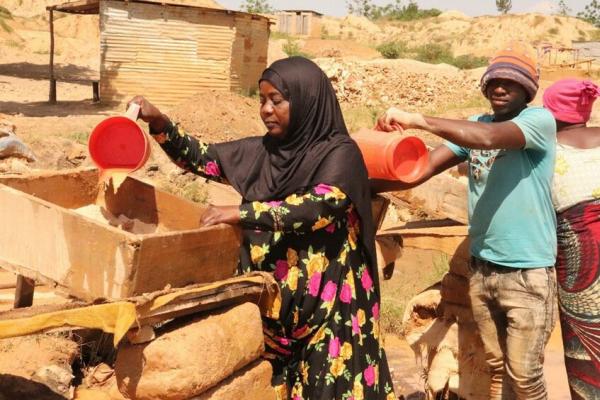
Tanzania is a resource rich country. Mining of gold, copper, diamonds, coal and natural gases make up over half of the country's total exports. However, this wealth does not reach the most marginalised people, with the country’s poverty line standing at 50.4% 1.
What is extractive industry?
Extractive industries are the businesses that take raw materials, including oil, coal, gold, iron, copper and other minerals, from the earth. Examples of extractive processes include oil and gas extraction, mining, dredging and quarrying.
Why are marginalised people excluded from the industry?
In the extractive industry, conflicts between investors and communities are common. Misunderstandings or limited knowledge of community needs and interests causes tension between communities and mining companies. Inadequate policy implementation perpetuates human rights abuses, child labour, corruption, social exclusion, gender pay gaps and environmental degradation, putting the local community at risk of losing land to private investors without compensation.
Patriarchal systems make the exclusion of women, youth and people with disabilities worse, preventing them from benefiting from mining investment opportunities.
How we're helping to change this
Implementing an empowerment approach for 4,000 primary actors.
Engaging 800 community members and 160 community leaders to sustain inclusive and non-discriminatory environments, providing additional extractive sector monitoring, reporting and accountability
Building the capacity of nine civil society organisations, unions and networks to prevent and resolve corporate human rights abuses and environmental violations.
Training eight small artisan mining businesses and two large mining businesses to implement decent and safe work conditions, natural resource management and environmental conservation.
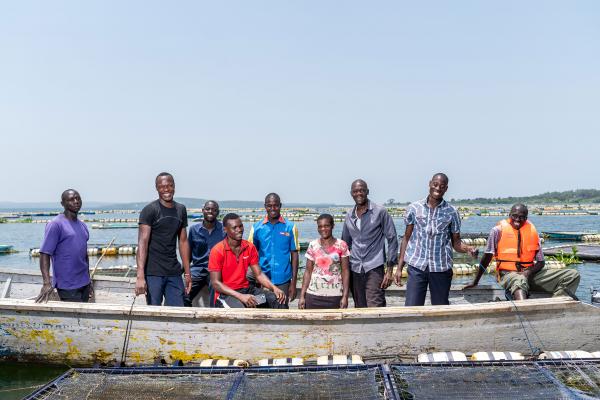
Holding extractive industries to account
Youth, women, and people with disabilities can play a powerful role in demanding rights and equal access to information and justice in the extractive industry. Volunteers help these marginalised groups to gain a fair income by giving them the necessary skills, assets and aspirations for full, equal and effective participation in the industry. This includes helping them to realise their right to quality jobs, income, social inclusion, protection and civil society support.
CLARITY also works to strengthen accountability with the community, private sector, and government and encourage responsible business practices within the extractive sector, including access to employment rights.
How we do this:
- We support people to access justice for human rights violations in the extractive sector by linking them up with human rights agencies;
- Work with informal artisanal women miners to improve their working conditions, seek justice for gender-based violence, and improve incomes through a pilot on small-scale artisanal mining enterprise;
- Support the transition away from polluting industries by working with youth volunteers to start a dialogue around other livelihoods possibilities.
Supporting alternative livelihoods
Interactive theatre for change
Interactive theatre is one of the unique approaches used to implement the project. CLARITY uses interactive theatre to reach out to the wider audience in the project area, raise the voice of primary actors and influence community behaviour change. Theatre is a powerful tool for this, as it showcases issues in a real-life context and allows those watching to form their own conclusions.
National volunteers recruit local community members to perform as part of the theatre group. With the assistance of the volunteers, actors conduct community dialogue sessions to engage with local people on the issues that need to be addressed in the community.
With the support of local leaders, volunteers put on huge open performances to the public. Afterwards, communities are encouraged to reflect on what they’ve seen and discuss possible solutions.
We use different methodologies such as traditional dance, interactive theatre, poems and songs in delivering and addressing sensitive issues of social-culture behaviour, norms and attitudes that perpetuate exclusion and inequality to vulnerable women, youth and people with disabilities.Helena MtajuCommunity volunteer
So far, volunteers have explored complex social issues such as disability rights, child labour, gender equality, young marriage, and gender-based violence, challenging cultural norms and promoting equal opportunities for all.
Empowering future generations through youth councils
Through engaging with young people, VSO ensures the project impact will continue for generations to come. The introduction of youth councils supports young people to connect, mobilise and advocate for their own interests with governments. Council members are selected by other young people in the community to represent them. They are also mentored in issues facing the community and empowered through training in leadership skills, youth-rights and having the confidence to join in conversations around their future.
The youth also can learn practical employment skills, with classes including renewable energy, soap production and food processing. Through their Life Skills Advisor, young people are connected with local employment opportunities in the business and private sector.
Supporting SMEs
The volunteers work closely with the National Economic Empowerment Council (NEEC), Small Industry Development Organization (SIDO) and local government authorities to identify and assess 18 potential Small and Medium Enterprises and small artisan mining businesses in the project area.
Following this, the project team, support SIDO and NEEC to train the selected businesses on decent and safe work conditions, natural resource management and environmental conservation.
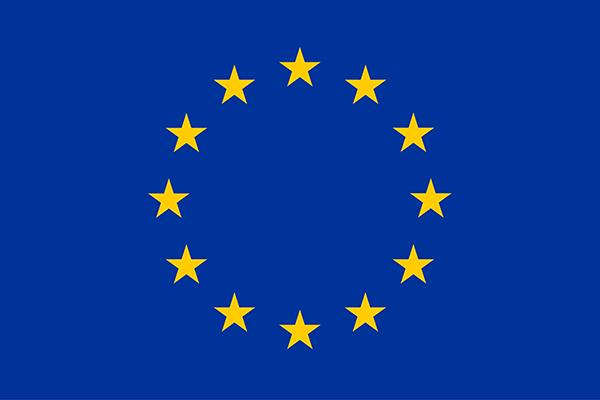
The CLARITY project designed and implemented by VSO, the Lawyers’ Environmental Action Team (LEAT) and the Tanzanian Women Chamber of Commerce (TWCC) in Geita (Geita Municipal and District Council) and Mara (Butiama, Bunda and Tarime Districts) regions.
References
1. The World Bank in Tanzania, The World Bank (Nov 04, 2021).
Related links
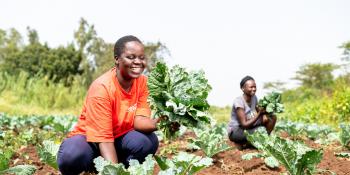
Resilient livelihoods
Ensuring people have the skills needed to support themselves and their families.
Over 400,000 people benefited from our work supporting livelihoods using our current strategy.
Tanzania
We've worked in Tanzania since 2005, building healthy communities, strengthening inclusive education systems, and supporting people to develop secure and resilient livelihoods.
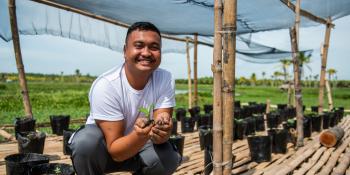
Our projects
VSO runs a vast range of projects spanning our three global programmes; resilient livelihoods, inclusive education and healthy communities.
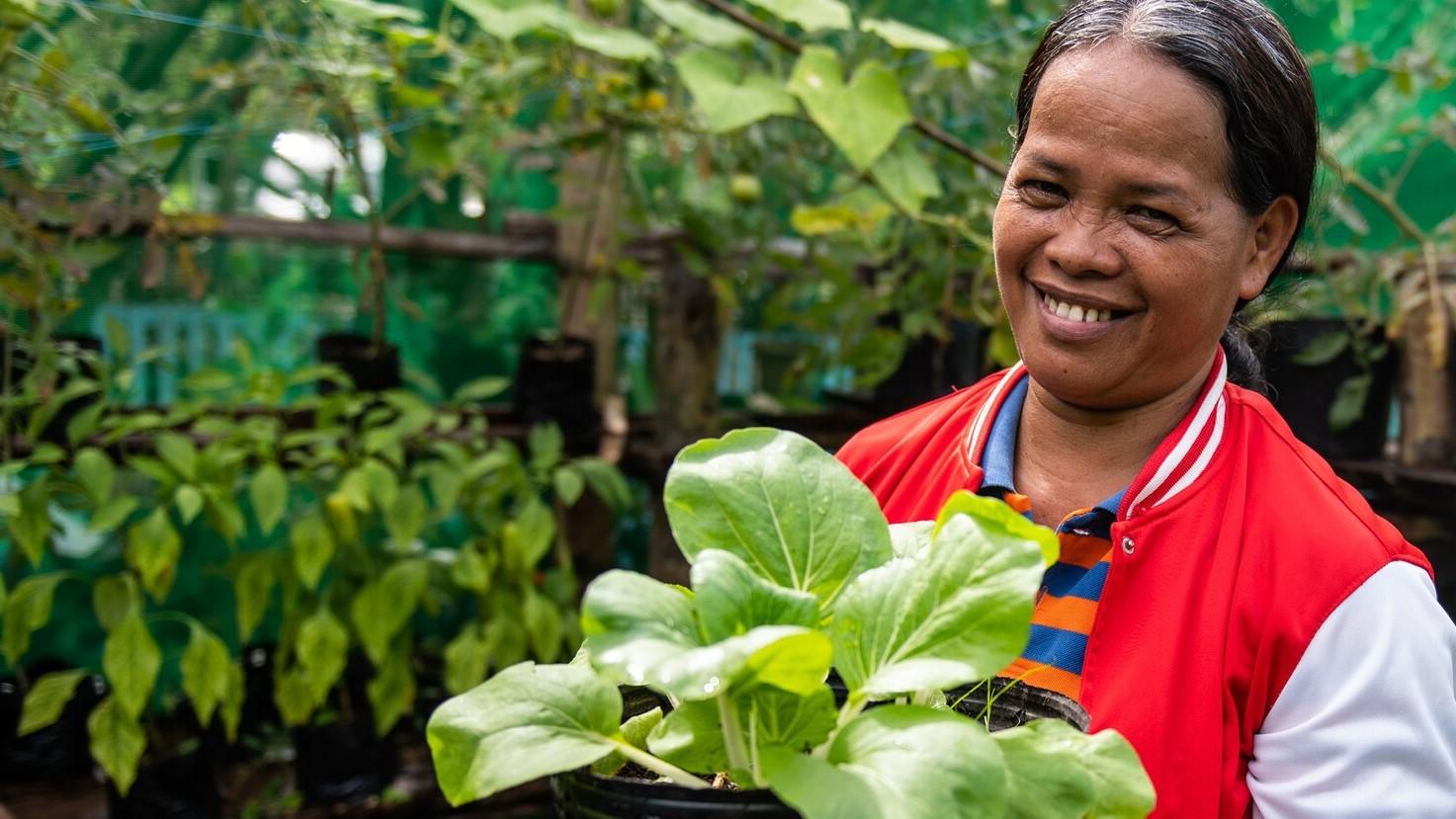
Support us with a donation
